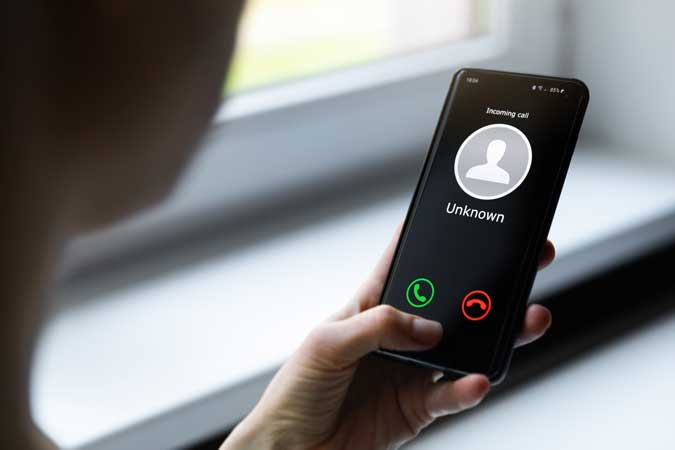How to Prevent Phone Fraud

Learn how to protect yourself from phone fraud as we continue helping our members #BeCyberSmart during National Cybersecurity Awareness Month.
We’ve all heard of the Nigerian prince email scam, by far the longest-running internet fraud. This type of cyber-attack was extremely successful because it was not only a new form of attack (in the 80s and 90s) but because people perceived emails to be a safe unbreachable environment.
One such attack is called vishing and it targets its victims using phone call scams. To steal your social security number, credit card information or other sensitive information, hackers will try to convince you to divulge those details during a phone call. It is one of the leading methods of identity theft and bank fraud because scammers will attempt to impersonate a legitimate company or agency over the phone in order to persuade you to believe their authority. In 2019 alone, consumers reported losing more than $1.9 billion, with nearly $667 million lost to impostor scams alone. While scammers target consumers using every possible method of communication, phone calls are the most common.
Can you detect a fraudulent call?
Most vishing scammers will already know a handful of details about you in order to complete their impersonation. Social media alone can provide them with your entire family’s full names, including your children’s as well as your place of employment, current city and your birthdate. Let’s review the following examples:
- Bank Fraud – The scammer poses as a Hughes Federal Credit Union representative and calls you to let you know that your spouse has applied to refinance their vehicle and added you on the application as a cosigner. In order to move forward with the application they need your social security number, current employer and current address. This catches you by surprise, you weren’t aware your spouse was refinancing but because you don’t wish to be rude you provide the information.
- Medical Fraud – A scammer poses as a medical professional from a well-known lab clinic in town. They mention that you have a past due bill that needs to be paid or will be sent to collections. They provide you with the website where you can pay online but you will need to create a login, or you can pay by phone now using a credit card. You had some scans a while ago and assume that’s what they’re talking about, so you provide your credit card information.
- School Fraud – A scammer notices you are a student at a local college because you recently posted on social media that your grandparents were helping with college expenses. The scammer poses as the financial aid office clerk. He lets you know that the school recently received additional funding and you are eligible for a work study program. He says its easy money and you’d only work 4-5 hours a week and receive payment as if you were working full-time. All he needs is your bank information to set up your direct deposit as they’re already depositing money into student accounts. You give him your bank information then he tells you to monitor your email for additional details.
Would you have fallen for any of these? A scam call isn’t always a robot, or a person with a foreign accent. A scammer can be anyone and detecting one can be difficult. Remember to always be alert and if you don’t recognize a phone number, it’s always best to let it roll over to voice mail. Having firsthand knowledge on how these scammers operate gives you the upper hand and understanding that legitimate businesses don’t make unsolicited requests for personal, sensitive, or financial information is crucial. Here are a few other things to keep in mind:
- If the person on the other line seems aggressive or tries to pressure you into giving sensitive information, it’s likely a scam.
- You will most likely receive a letter in the mail before companies start reaching out by phone.
- Scammers tend to manipulate your emotions to obtain what they want. If you’re feeling pressured, it’s okay to say things like, “this is not a good time,” or “I need to check a few things.”
- Caller ID will sometimes show you the name of a bank, charity, company or organization, but with today’s sophisticated spoofing technology, scammers can easily mask their identity.
- Enroll in the National Do Not Call Registry. This won’t necessarily prevent scam calls, but it will help to identify them and prevent others from falling victim. Do Not Call Registry.
Although your phone might alert you with a “scam likely” message when a number has already been identified as a scammer, the truth is that hackers are smart and are often switching numbers to get you to answer.
What to do if you think you’re a victim?
- End the call as quickly as possible. Do not give any information. If you answer and engage in conversation, this will prove that your number is real, and you will soon be bombarded with more scam calls.
- Immediately call the institution/office that the person was attempting to impersonate and tell them what happened. It’s important for these legitimate businesses to be aware so that they can deploy their own safety and security measures.
- Contact your financial institution. If you gave any financial information, your financial institution will be able to freeze your accounts, place temporary holds and monitor your assets.
- File a complaint with the FTC online, or call 877-382-4357 (TTY: 866-653-4261).